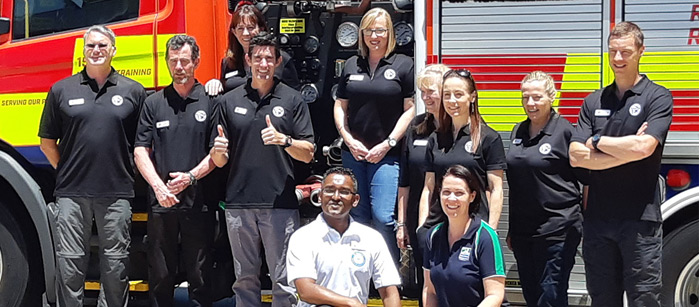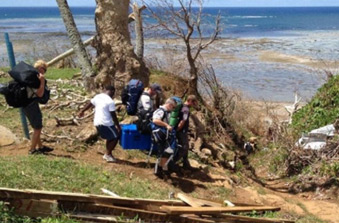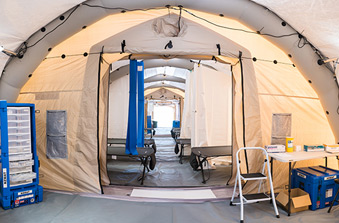The New Zealand Medical Assistance Team (NZMAT) compromises of doctors, nurses, logisticians and allied health staff such as pharmacist, physiotherapists, public health staff and paramedics, depending on skill set required to meet the objectives of a deployment.

NZMAT is an official New Zealand Government-led, civilian-based deployable emergency medical team comprising of clinical and non-clinical personnel from within the New Zealand health and disability system. NZMAT was established in 2009 primarily to respond to sudden onset disasters both domestically and internationally. It is the only entity of its kind that is World Health Organization accredited in New Zealand. All offshore NZMAT deployments are requested through the Ministry of Foreign Affairs and Trade (MFAT) and are formally tasked through the Ministry of Health’s Emergency Management Team.
NZMAT involves a partnership between the Ministry of Health (MoH), Fire and Emergency New Zealand (FENZ), the Ministry of Foreign Affairs and Trade (MFAT), and 160 trained staff from across the health sector.
A large cache of medical consumables, clinical equipment and self-sufficiency habitat and equipment is pre-packed ready for multiple health disaster scenarios.
NZMAT functions
- If required and when possible, deploy a small Forward Planning Team consisting of a Mission Lead (MoH personnel), Clinical Lead, Logistics Lead and Public Health Lead (as required), to provide an assessment on requirements for health assistance.
- On request of the relevant authorities, deploy a modular health response to support health services following an emergency event within New Zealand or the south-west Pacific. Modules may include wound care, primary care, secondary care, public health and/or psychosocial support services as required by the disaster affected area.
- Provide back-up/surge support for trauma and surgical services in the affected locality when these are overwhelmed (providing health and accommodation infrastructure is in place to support the delivery of services).
- Work closely with other regional response agencies and authorities to ensure there is joined-up response and that an additional burden for support is not placed on the affected area by the NZMAT deployment.
- Ensure NZMAT is led by personnel trained and experienced in health disaster responses.
- Develop and maintain a self-sufficient NZMAT capable of deploying into an austere environment to deliver community-based services.
Who organises and coordinates NZMAT?
The Ministry of Health organises NZMAT. On deployments NZMAT teams are led by a Team Lead who reports to the Ministry of Health’s Mission Lead. NZMAT will liaise with and operate under the auspices of the health authority in any overseas deployment and Te Whatu Ora if deployed within New Zealand.
NZMAT capability
NZMAT received classification for both Type-1 fixed and Type-1 mobile teams in 2017. As a Type-1 team NZMAT can provide services up to 12 hours per day, 7 days a week. NZMAT was the second team in the world to receive international classification for a Type-1 mobile team.
 Logistics
Logistics
A vital part of any NZMAT deployment are the logisticians. A logistician is responsible for supporting the command and medical team in every aspect of the deployment including but not limited to: planning and onsite operations, communication, transport, team safety and security, site management, maintenance, power, water and sanitation to name a few.
Fire and Emergency New Zealand is NZMAT’s logistics partner. NZMAT Logisticians are veteran fire fighters with extensive experience in emergency management and previous deployment experience, able to adapt to any situation from conducting repairs to ensuring caches of equipment are fully stocked and ready for use. NZMAT Logisticians are heavily involved in ensuring NZMAT’s self-sufficiency cache is ready for deployment.


